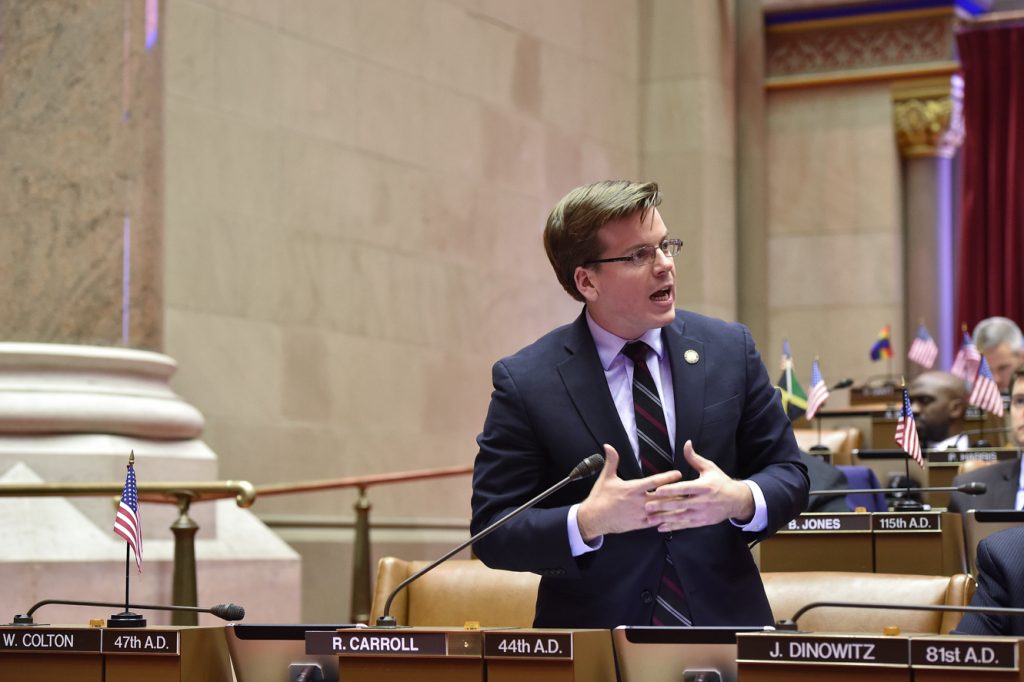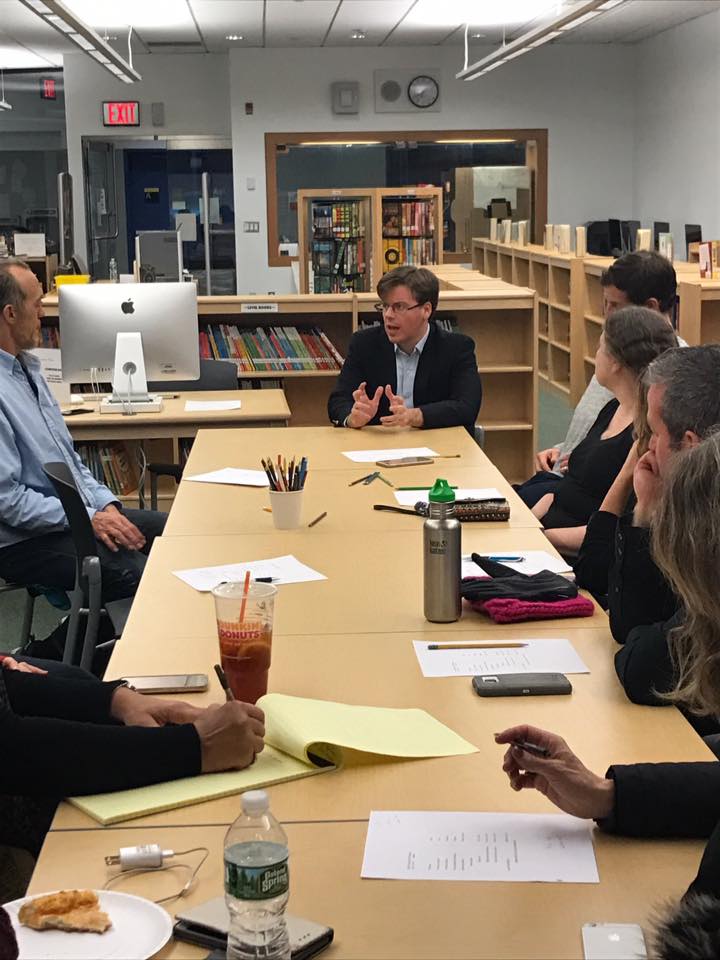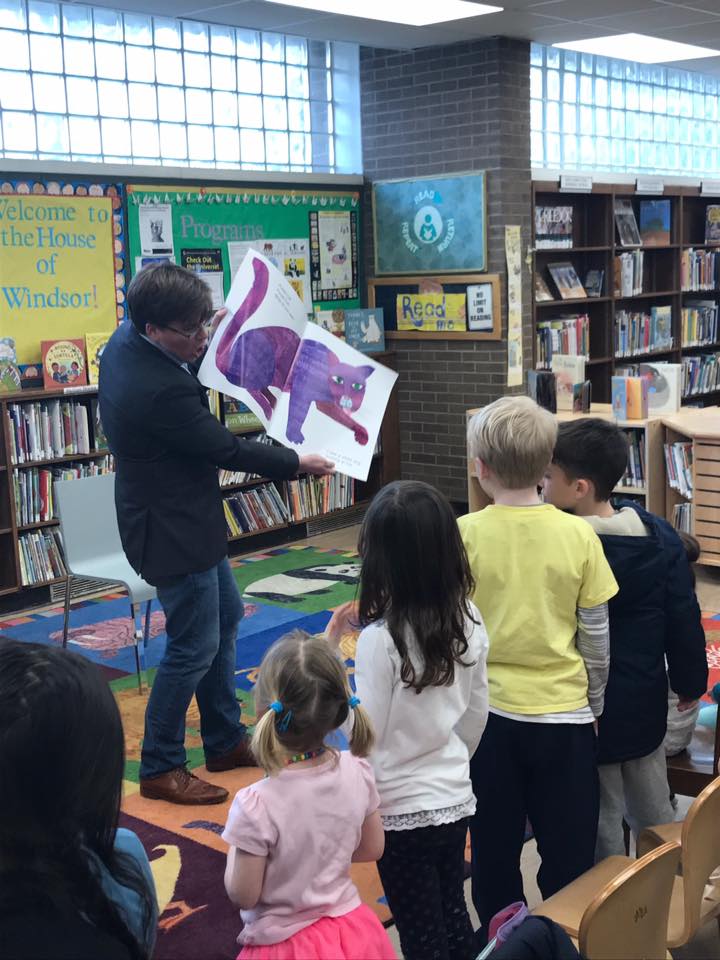The Reader Interview with Assemblymember Robert Carroll
Spring of 2017 has been a tumultuous time for the New York State Legislature. Having missed the deadline to pass a new budget, the Assembly and the Senate voted for an emergency extender budget. This placeholder, in effect until May 31, prevented a shutdown of the state government but left many questions unanswered.
In the midst of this uncertainty, and between votes on the Assembly floor and meetings with colleagues, Assemblymember Robert Carroll was kind enough to speak to me in early April. Assemblymember Carroll, elected in 2016, may be new to the Assembly but not to politics. He has been involved with the Park Slope Civic Council, Community Board 7, and was the youngest President of Central Brooklyn Independent Democrats. He now represents Assembly District 44.
Our conversation touched on the concerns of his District, the Young Voter Act—a bill Carroll crafted in collaboration with three Bard High School students and that would, if passed, lower the New York State voting age to 17—and Raise the Age. Raise the Age is an unnecessarily controversial effort to ensure that individuals under the age of 18 will not be prosecuted as adults for non-violent offenses. As of this writing, the Assembly has voted to raise the age, but the Senate has not.
Assemblymember Carroll’s take on how young voters, and young people, should be treated reveals his faith in the ability of the community to determine what’s best for the whole. As the story of Kalief Browder—a young man whose life and death speaks to the necessity of Raise the Age—becomes more widely known, one can hope that the resolution of this issue will no longer be considered a roadblock to the passage of a budget, but, as Carroll calls it, “a necessary good.” Albany could certainly use a bit more of Carroll’s optimistic practicality.

What do you hope to accomplish for your district in your first term?
Originally I was hoping that we were going to be able to pass a progressive and transparent budget, one that prioritizes New York City public schools, our infrastructure, and also making sure that necessary services to our senior centers were fully funded, as well as bigger picture items, like raising the age of criminal culpability to 18 from 16, making sure we bring electoral reforms to the state of New York, and that we open up our election process.
[pullquote]Time will tell which bills will pass, and which ones won’t, in the New York State Legislature this year, but one can only hope that future legislation will build “towards a more just and fair society.[/pullquote]Obviously we’re still having these big picture conversations; raising the age is still a necessary good, and hopefully we will get it by the time this is published. It’s a reform that will make our society more just. It’s something that is right, makes sense, and is practical. It has hit a lot of roadblocks, and that’s one of the reasons why we don’t have a state budget. Whenever you’re trying to reform a system, or whenever you’re trying to change something, there are always people who are inherently afraid of that change and will not want to go and do it.
I am looking forward to still working on those issues, and making sure we find ways to bring about real electoral reforms. That’s something I’ve done as an attorney and worked for as an activist and I think is necessary.
New York state is one of two states where a person 16 years of age or older can be automatically prosecuted as an adult. At the same time that Raise the Age is front and center in Albany, you’ve introduced the Young Voter Act to lower the state’s voting age from 18 to 17. Does our state need to change the way it looks at young people in general?
Yes. On the one hand, our outlook is paternalistic towards young people. On the other, when people make mistakes early on, we can brand them for life, putting them in a system that will basically make it impossible to right their life. This impacts communities in a whole host of ways, for generations. The Assembly bill for Raise the Age is not saying that there aren’t repercussions for violent, heinous crimes; it’s not stopping somebody who has killed or raped someone from facing real serious repercussions. The Assembly bill addresses cases where, for example, a young person commits a burglary that is non-violent, but because that crime is categorized with other violent crimes, they’re treated like an adult and could possibly do years and years in prison and have a felony record to their name. No one is condoning that action, but if we put a 16 or 17 year old in prison for years, it only hurts the rest of us.
It’s going to be harder for that person to reintegrate into society as a functioning individual, and become employed. That creates other burdens for society. That person could commit other crimes, could go on some form of public assistance, they could lose their relationships with family and friends and become disconnected. It reverberates throughout and hurts communities. That’s why Raise the Age is so important.

And it couples directly with lowering the voting age. Some people think, ‘shouldn’t they be the same? If someone is not mature enough be tried as an adult, then surely they’re not mature enough to vote.’ That’s a false choice there, because Government tries to reinforce good habits all the time.
By lowering the voting age to 17, all students can at least vote once before they go to college, or go out in the world to work. So we foster that habit. Then it’s on them, to continue to participate. But we jumpstart that person’s engagement in civic and political life. There’s a lot of good research out there that if you start voting before you’re 25, you’re very likely to become a lifetime voter. If you start voting after you’re 25, you’re not likely to. That was in The Economist back in February. In 1972, over 50% of people 18 to 25 voted in that year’s presidential election. In 2012, it was around 38%. We’re seeing this steady decline in youth participation in elections, but we want to reverse that and help people become regular voters.
And you’re not a regular voter if you only vote every 4 years for president, and if you’re not voting in local elections: midterms, State Assembly, State Senate, City Council, and mayoral and gubernatorial elections, and also primaries in New York. Most elections in New York City and in the suburbs are decided in the primaries. Most years in New York you can vote almost every year, once in September, and once in November. We’re going to have a big election in New York City in September for all those citywide offices, and a general one in November. We’ll also be voting on a constitutional convention.
We need people to participate in all of these elections. I’m a big believer that the whole collective, the group, is rather smart, and in tune with what’s going on. I’m not cynical. There are some people who believe that voters aren’t intelligent, that they’re easily manipulated by power brokers, or will only vote in accordance with certain aspects of their identity. If they’re young, then they’re easily swayed by their parents. I don’t believe any of this. Voters do tend to go towards issues that are better suited for the whole. All elected officials should be trying to get as many people out there to vote as humanly possible. It’s simple – we’ll get better outcomes when more people vote.
What has most surprised you about being in the Assembly so far?
There are days when you feel progress is being made, and that you’re moving forward. And then there are days when you feel there are entrenched forces all around and nothing will change. That kind of dichotomy, where it can switch on and off, can be frustrating. You can feel very heartened one day, and completely frustrated the next day. The other surprising thing—which is somewhat amorphous and hard to pin down—from day to day those things can be almost the same. You can have a person surprise you from one day to the next. You might say to yourself, ‘I never thought this person or this organization would champion this issue,’ and then you think, ‘Why is that person now doing this?’ You forget it’s three-dimensional, with different parts moving.
There are some really good things that the New York State Assembly and the Legislature has done lately, from minimum wage, to stopping hydrofracking. But with something like Raise the Age, you wonder, ‘why can’t we figure this out?’ The Assembly is very good on it, but the Senate is being pretty difficult on it right now. Why can’t we come up with something that’s reasonable? It’s not an unreasonable point to make, or issue to bring to the forefront.
So overall, it’s not as great as it is on its best day, nor is it as bad as it is on its worst day.
The 44th District is pretty diverse. How do you balance your different constituents’ needs?
My district is wonderful. We’ve got Park Slope, Windsor Terrace, Kensington, Victorian Flatbush, Ditmas Park, parts of Borough Park, and a little bit of Midwood. There are people who are very new to Brooklyn, who have just moved into all parts of my district from far and wide. There are some people moving to Park Slope, Victorian Flatbush, and Windsor Terrace who are maybe professionals with means and money. Some people are moving to Kensington and Coney Island Avenue from Pakistan and Bangladesh. There’s a large Orthodox Jewish population in Borough Park, and in the district there are also people of Irish, Italian, and Puerto Rican descent who have have been here for years and years. I grew up in the district, in Windsor Terrace and Kensington. Brooklyn is the only home I’ve ever known.
There are multigenerational homeowners here, and immigrants, and people who are brandnew who might be called gentrifiers. That’s the way neighborhoods are created in New York. If you’re a New Yorker, you understand the city is always in flux. And when you get down to the core issues, people are worried about the local subway station, the local public schools, making sure the neighborhood is safe and affordable and that city services are working.
A great thing about this district is that a lot of people are concerned about building towards a more just and fair society. It’s not just purely a matter of, ‘what the government is doing for me.’ They understand that we’re all in this together and that we need to bring everyone along with us.

The previous Reader Interview: http://www.psreader.com/issue/issue-59/the-reader-interview/enriched-landscapes-the-reader-interview-with-susannah-c-drake-on-cleaning-up-the-gowanus-canal/
